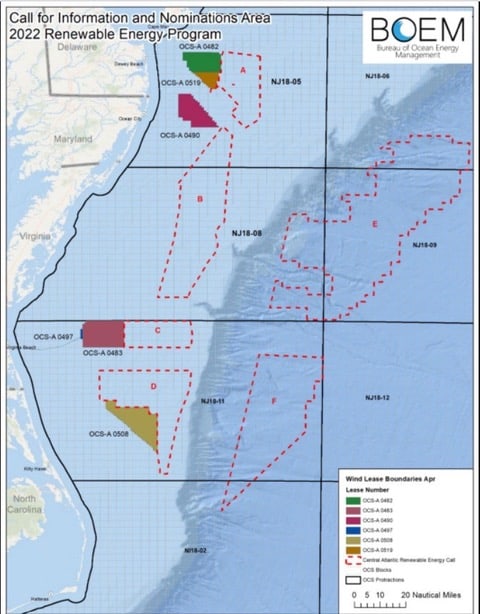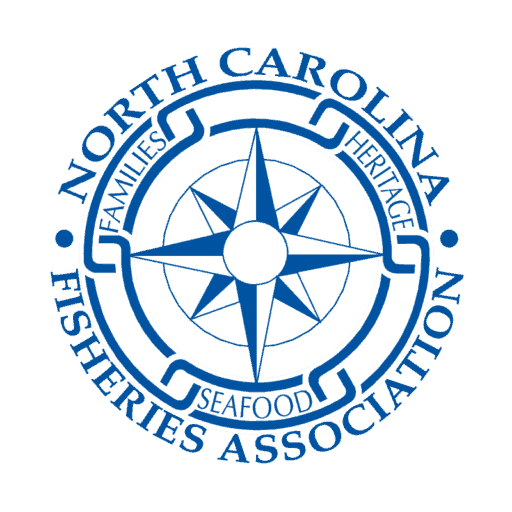Last week Dewey Hemilright and myself headed to Washington DC to attend the East Coast Climate Change Scenario Planning Workshop. The two and a half day workshop brought together about 75 fishermen, fishing NGOs, scientists, and fishery managers from Maine to Florida. It’s pretty rare to get that broad of a representation of our coastal fisheries together in one room. Hats off to the organizers.
Our goal at this workshop was to look ahead at the next 20 years to see what governance and management issues related to climate change and fishery stock distributions we are likely to see between now and 2042 on the east coast of the United States. At the workshop we split up into 8 groups of 8-10 individuals. Each group was a diverse mix of people; split up between geographical areas and what groups they represented.
Each group used a set of parameters consisting of probable changes, uncertainties, and a few wild card events (these were discussed in a series of webinars held earlier this year) to setup different scenarios that may or may not occur in the future. Each group chose five parameters, each with either a positive or negative spin, and put them together to make several different stories about what we may face in the future.
Most of the scenario stories had similar themes. Some had good outcomes, others had not so good outcomes! In this type of planning, it is important to look at both ends of the spectrum to be prepared for the future. But there were several key themes that were brought up in almost every story.
Competition for space with other coastal uses, specifically windmills, was a common future concern. If we push fishermen out of one area and into others, fishing pressure may become concentrated and lead to less access and possible declines in fish stocks.
Another common concern was that the Magnuson-Stevenson Act needs to be reauthorized to allow fisheries management to be more flexible. We cannot sustain all fish stocks at historic highs and many managers realize many of these stocks will never reach the highs they once saw decades ago.
We need more science and more real time data (especially from the recreational sector) to shrink scientific uncertainties and have a better idea of the fish swimming in the water right now. With more scientific data and less scientific uncertainty fishermen can have higher annual catch limits (ACLs) and we can better plan on what fish will be available in the future. We also need to update our fishery management plans (FMPs) more often as well as do more stock status updates.
We need help preserving our fishing fleets and our working waterfront dockage and fish houses. Our governing bodies need to make this a priority so we can have the tools necessary to harvest fish in the future.
The most import theme I saw there was the resilience and adaptability of us fishermen. We discussed how we have already weathered so much in the past 20 years. We discussed how we need to continue working with government, continue helping our science to get better, and we need to continue to help fisheries managers be more flexibility and make faster more educated decisions. The people at this workshop said we need to act now!
I agree and that’s why I’m here with NCFA.
NCFA is already working on each and every one of these issues every day. NCFA is working for you in Raleigh getting our message to the legislature. NCFA is working with fisheries managers on the federal and state levels ensuring we have quotas to harvest. NCFA is helping scientists to get better and quicker data to ensure our stocks remain healthy.
Together NCFA and the great fishermen of this state will ensure that commercial fishing remains viable in any future scenario. We will do this by continuing to work hard and fight for our right to fish.
Thomas Newman
NCFA-Fisheries Liaison
LEGISLATIVE UPDATE for 6/27/2022:
There hasn’t been much to report on fisheries although it hasn’t been boring in the General Assembly. It appears adjournment will come before July 4th which means there will be no action on fisheries issues, either bad fish bills or good fish bills. Last week I attended several committee meetings on non-fishing issues, but still related as far as the process is concerned. Such as: we’ve been told many times that “fish” is just too divisive or controversial. Yet last week they debated another issue which is highly contentious, yet not in a partisan way. That issue is gambling, such as sports betting. I made the point in one committee meeting that those who are opposed to the bill to just amend it by putting the word FISH in it, and it would fail. That comment brought much laughter but there was a point to be made and it wasn’t lost on some legislators.
There will be a lot of new faces in the General Assembly after the November election. Be assured that the old excuse of “fish” being too divisive won’t work.
At the federal level, Congressman Greg Murphy sent a letter to the New England Fishery Management Council in an effort to help our scallopers. It was greatly appreciated! If you would like a copy of his letter, just let us know.
God bless,
Jerry
Requests for Information:
Commercial Leasing for Wind Power
Development on the Central Atlantic
Outer Continental Shelf
If this were to go forward as shown with the boxes drawn, AREA F & E would be closed areas for Pelagic Longline Gear because the gear with its free floating in water columns isn’t compatible in any way with floating or fixed wind platforms.
Area F in particular is the most productive HMS fishery grounds for Yellowfin Tuna, Bigeye Tuna, Swordfish etc., please read the full document HERE.
Thanks
Dewey Hemilright
Area 1 Representative
NCFA Board of Directors

